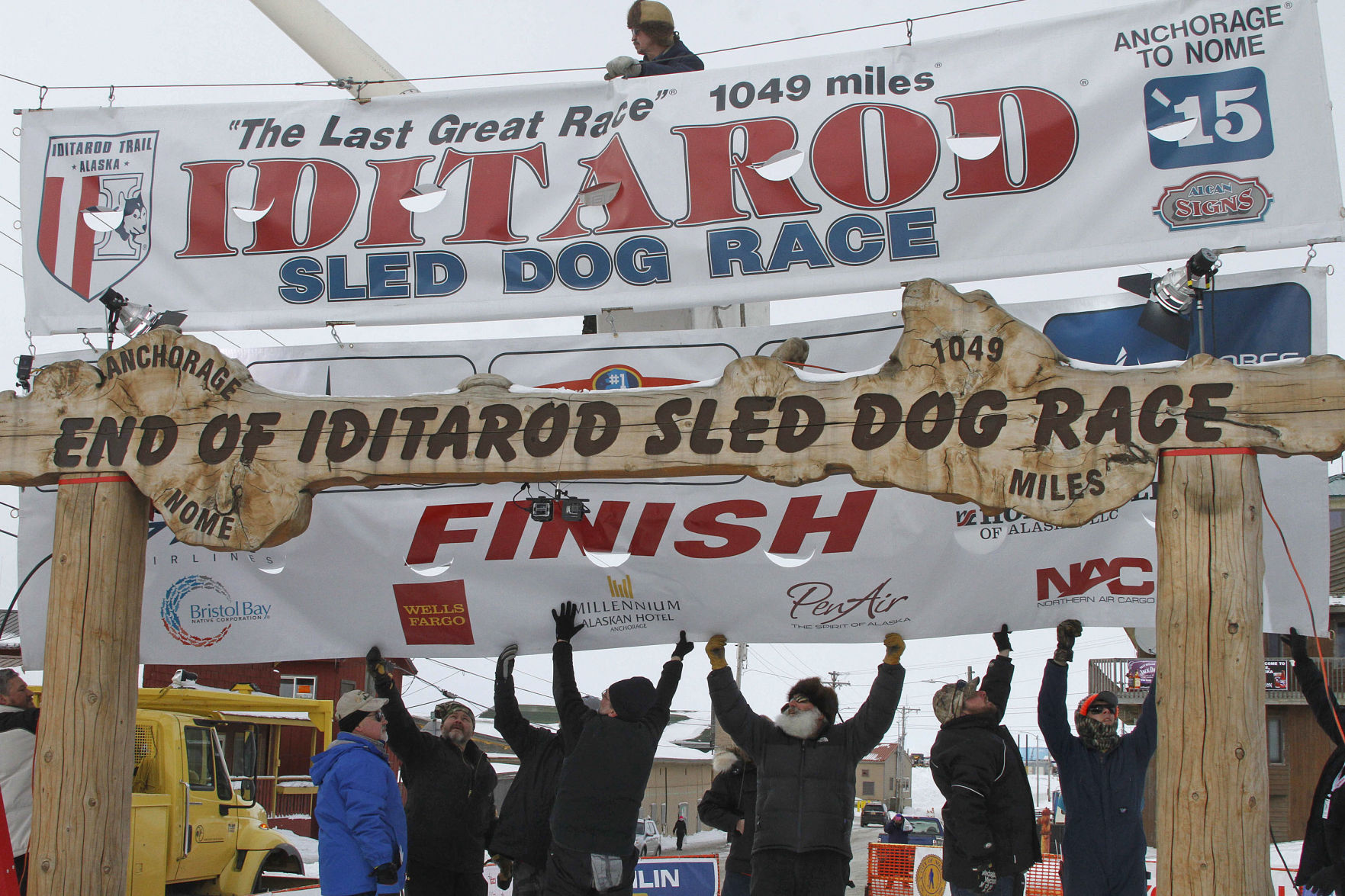ANCHORAGE, Alaska (AP) — The Latest on doping claims at the Iditarod (all times local): 5:25 p.m. Organizers of Alaska’s Iditarod are acknowledging the famed race is in its darkest time as it grapples with fallout from the first doping
ANCHORAGE, Alaska (AP) — The Latest on doping claims at the Iditarod (all times local):
5:25 p.m.
Organizers of Alaska’s Iditarod are acknowledging the famed race is in its darkest time as it grapples with fallout from the first doping scandal in its history.
Still, Iditarod CEO Stan Hooley said Tuesday he’s confident the Iditarod will “emerge from this storm and move on.”
Hooley’s comments follow the Iditarod’s explosive news that four-time winner Dallas Seavey had four dogs that tested positive for the opioid pain reliever Tramadol after the race last March. Seavey finished second in this year’s race.
The drug is among substances banned from the nearly 1,000-mile Iditarod Trail Sled Dog Race.
Seavey strongly denies giving any banned substances to his dogs, suggesting he may have been the victim of sabotage by another musher or an animal rights activist.
Hooley says Seavey’s sabotage claims are possible, but he doesn’t think it likely.
———
3:50 p.m.
An Alaska veterinarian says an opioid pain reliever is the last medicine she expected to see when the Iditarod Trail Sled Dog Race became engulfed in the first animal doping scandal in its history.
Jeanne Olson, a North Pole veterinarian with sled dog patients, sees no benefit in administering the drug during a race because of the drowsiness it causes.
This week, race officials said four-time winner Dallas Seavey had several dogs test positive for Tramadol, a banned substance in the race. Seavey denies administering the drug, and says it could have been sabotage.
Olson, who was the head veterinarian in the Yukon Quest International Sled Dog Race in the 1990s, prescribes Tramadol mostly for profound pain relief.
But she also cautions dog owners that the animals will become sedated from it. So when she heard that released that it was Tramadol as the drug, she thought, ‘Well, that’s surprising. Why would anybody use that?'”
———
8:50 a.m.
Animal rights activists have gained their most powerful ammunition in their long fight against Alaska’s Iditarod Trail Sled Dog Race — a world class champion’s team caught with a banned substance in their systems in this year’s race.
PETA wasted no time responding to the news that several of four-time winner Dallas Seavey’s dogs tested positive for an opioid pain killer.
In a statement released Tuesday, the group asks “How many other mushers are turning to opioids in order to force dogs to push through the pain?”
It’s the latest blow for the world’s most famous sled dog race, which has seen the loss of major sponsors, continuing dog deaths and attacks on competitors in extreme rural parts of Alaska in the nearly 1,000 mile (1,609 kilometer) race.
———
10:20 p.m. Monday
The world’s most famous sled dog race was thrown into a frenzy Monday as the race’s governing board and one of its most decorated mushers were in open conflict over a dog-doping incident.
Dallas Seavey has won four titles in the nearly 1,000-mile race before his 30th birthday. But on Monday, he abruptly withdrew from next year’s race in protest after the Iditarod Trail Committee identified him as the musher who had several dog test positive for a banned substance.
Seavey adamantly denied the accusations, and he said he wouldn’t be thrown under the bus.
Four of his dogs tested positive for Tramadol, an opioid pain reliever, after finishing the race last March in Nome. Seavey was informed in April, and the committee said in a statement that after lengthy discussions with vets, race officials and Seavey, the board decided it could not prove intent.




